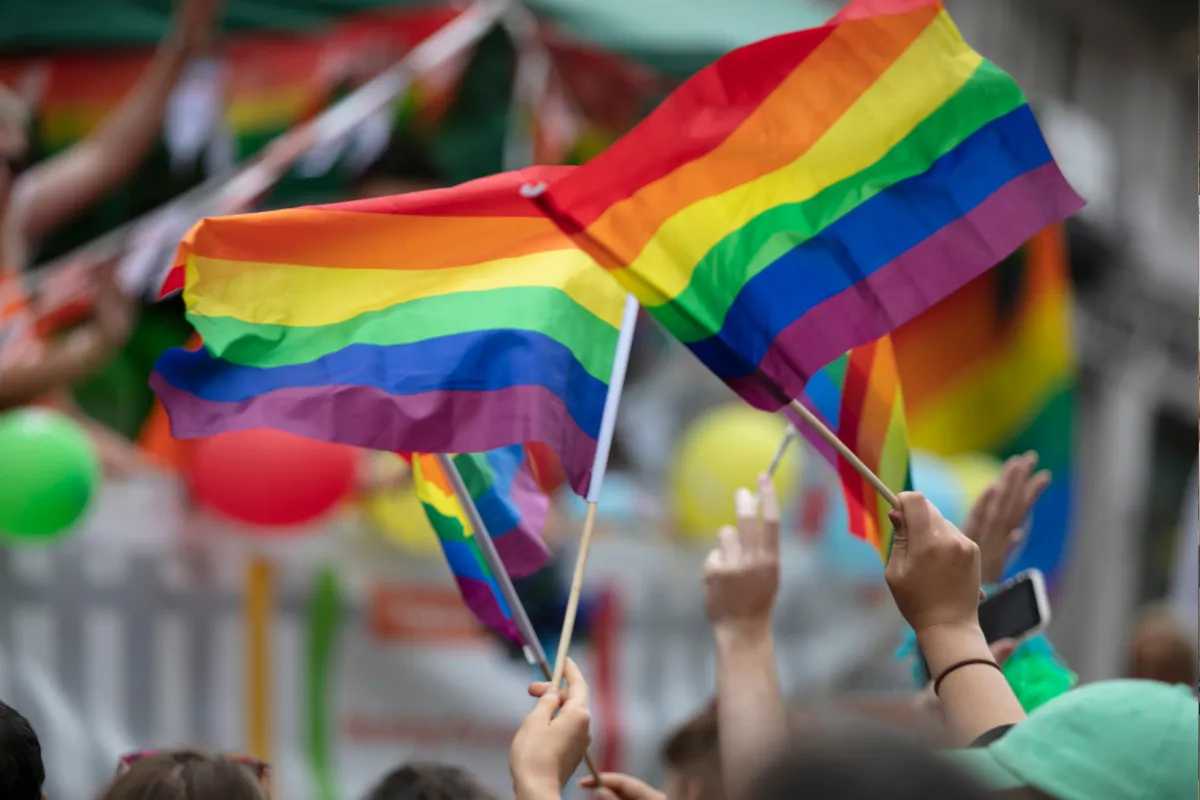
Pride Month, which began in 1970, is a time to celebrate the progress made in Lesbian, Gay, Bisexual, Transexual, Queer, Intersexual, Asexual and other community members’ (LGBTQIA+) rights. But it’s also a time to reflect on the work that still needs to be done to create a more inclusive society.
A recent survey by the Center for American Progress reported half of LGBTQIA+ individuals polled experienced some form of workplace discrimination or harassment due to their sexual orientation or gender identity.
It’s a sad reality that the area where LGBTQIA+ people continue to face discrimination is in the workplace. However, this can change with the right leadership and collective conscientiousness in workplaces.
‘B’ is the most recently added letter to the DEI (Diversity, Equity, and Inclusion) acronym representing one of the fastest-growing priorities for organizations worldwide. ‘Belonging’ is not just a buzzword; it’s a core element of a growing initiative to create workplace environments where people feel accepted by their colleagues regardless of their background or identity.
How belonging supports LGBTQIA+ employees in the workplace
DE&I is essential for creating a positive work environment where everyone feels respected. A diverse workforce brings together individuals with different backgrounds, experiences, and perspectives, which can lead to more innovative thinking and problem-solving. A workforce made up of people from various countries, cultures, and beliefs is a valuable resource.
Where DEI’s primary goal is to foster respect in the workplace, belonging helps promote workers to feel valued and safe enough to bring their whole selves to work. Employees who feel they belong — especially those in the LGBTQIA+ community — are more likely to stay with a company.
In today’s global economy, it is more important than ever for organizations to embrace not only diversity, equity, and inclusion but also belonging. Clients increasingly expect companies to reflect the diversity of the communities they serve. Many companies will lose both workers and loyal consumers when this expectation is not met. A DEI&B-empowered workforce can also help companies better understand and meet the needs of their customers.
Simply put: Introducing belonging into your workplace is the right thing to do. All people deserve to be respected and valued, regardless of their race, gender, sexual orientation, or any other identifying characteristic.
According to the Center for American Progress (CAP), “the current patchwork of nondiscrimination laws in states across the country and existing gaps in federal civil rights laws leave millions of LGBTQIA+ people without protection from discrimination.” While this is unfortunate, companies have the power and opportunity to prove how integrating holistic belonging initiatives is not only good for business, but also not a slant on society’s growth or belief systems.
The CAP study claims, “Discrimination has substantial adverse effects on economic, physical, and mental well-being, and many LGBTQIA+ individuals alter their behavior to avoid experiencing discrimination.” The more companies foster a safe and belonging environment for their employees, the more proactive workplaces become in fighting discrimination and creating empowerment in the workplace for those in the LGBTQIA+ community.
Create a more inclusive workplace this Pride month
If you’re a caring leader concerned with your workforce’s wellbeing, creating a more inclusive workplace for LGBTQIA+ employees is generally not hard. That said, establishing an internal system still involves several key, guiding steps.
In Eptura’s Workplace Innovator podcast episode “Diversity, Equity, Inclusion, and Belonging in the Workplace”, guest Jessica Bantom — Senior Associate of Workplace Experience and Diversity, Equity, and Inclusion Officer for Steele Strategies — discussed that a sense of belonging is a deeply personal experience, but that it will “impact [an employee’s] performance and ultimately how far [they] may actually go within an organization.”
First, it’s crucial your workplace has a clear and comprehensive non-discrimination policy that explicitly prohibits discrimination based on sexual orientation and gender identity. Communicate this policy effectively to all employees and reinforce it regularly. Additionally, train employees on LGBTQIA+ issues — such as sensitivity training and awareness workshops — to foster a better understanding and appreciation of LGBTQIA+ experiences and perspectives.
Eptura’s Culture and Engagement Program Manager, Emily Ramos, advises leaders: “It’s not surprising that the best companies to work for rate about 75% higher for inclusion than their counterparts. DEI&B initiatives are crucial for increasing trust, psychological safety, and engagement in the workplace. If you are a leader constantly looking for new ways to support Belonging for employees and remove obstacles that may hinder their success, consider committing to upholding DEI&B as a non-negotiable part of your leadership style.”
Making it a goal to create a supportive environment where LGBTQIA+ employees feel comfortable being open about their identities is essential. You can achieve this by encouraging open dialogue, actively listening to concerns without bias, and promptly addressing any instances of discrimination or harassment. Establishing employee resource groups or affinity groups specifically for LGBTQIA+ employees can also provide a sense of community and support within the workplace. These groups can serve as platforms for employees to connect, share experiences, and advocate for their needs.
Furthermore, review and revise any company policies, benefits, and practices to ensure they’re inclusive of LGBTQIA+ employees. It’s common practice to revisit DEI&B initiatives at least annually. This can include:
- Examining parental leave policies to be inclusive of same-sex couples
- Providing gender-neutral restrooms
- Updating health insurance coverage to includes transition-related care
By taking these steps, organizations can create a more welcoming and inclusive environment for all employees, thus leading to increased job satisfaction, productivity, and retention.
Be an ally to LGBTQIA+ colleagues
Being an ally to LGBTQIA+ colleagues helps everyone feel not only respected, but valued and safe.
Here are five ways you can be an ally in the workplace:
- Educate yourself: Check yourself! Take the time to learn about LGBTQIA+ issues and terminology. This can include reading books, articles, websites, and attending workshops and trainings. The more you know, the better equipped you’ll be to support your LGBTQIA+ coworkers.
- Listen and respect: Take the time to listen to and understand the experiences and perspectives of your LGBTQIA+ colleagues. This means being open to hearing about their challenges and triumphs and being respectful of their identities.
- Use inclusive language and pronouns: Be mindful of the language you use when talking about the LGBTQIA+ community. Use inclusive language that doesn’t make assumptions about someone’s gender or sexual orientation. For example, instead of saying “he or she,” you can say “they.” When in doubt, just ask. Putting in the effort to properly address an individual from this community is better than remaining silent.
- Be open to feedback and willing to change your behavior: If you make a mistake, be open to feedback and willing to change your behavior. This shows you’re committed to being an ally and willing to learn and grow.
- Support LGBTQIA+ organizations and causes: Show your support for LGBTQIA+ people by supporting LGBTQIA+-related organizations and causes. This includes donating money, volunteering, or attending Pride events.
When employees want to progress but feel held back by learned behaviors or unconscious biases, initiatives like Bantom’s “Start Where You Are Challenge” are a good place to start. The initiative, launched on LinkedIn, encourages individuals to take small, manageable steps to better understand their coworkers who may not look like them or come from the same background. “None of them are a heavy lift, but there are things that we can start literally from where we are.”
This Pride Month, learn how to be a better ally to your LGBTQIA+ colleagues by putting Belonging into your DEI framework. A unified and inclusive workforce will be more productive and happier than a fragmented one.








